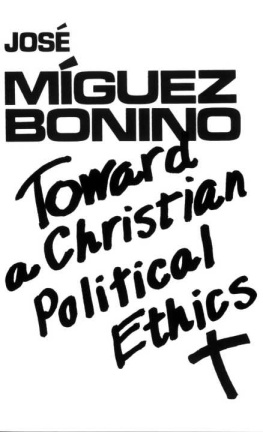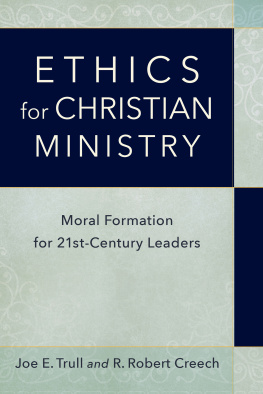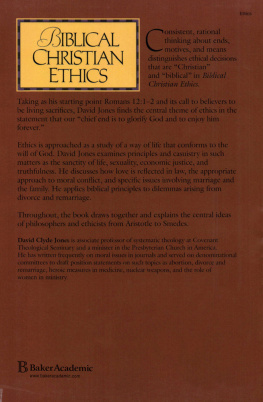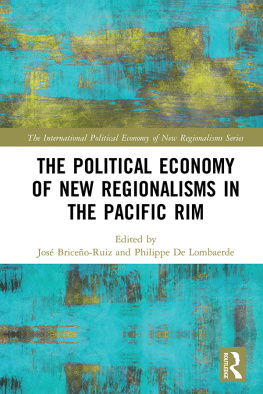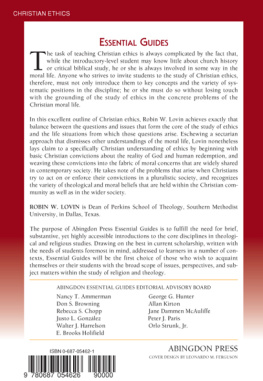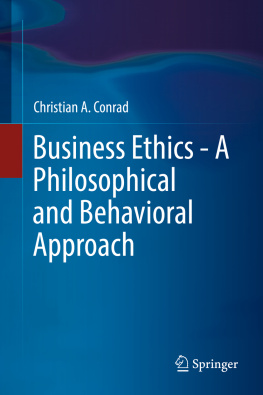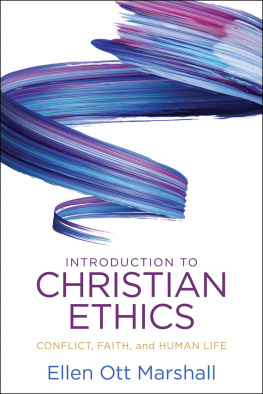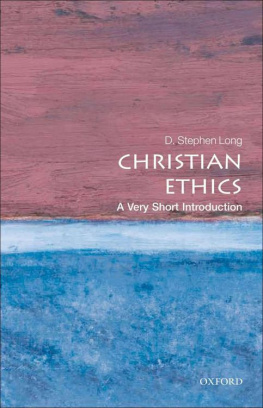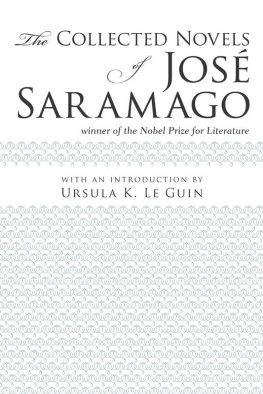Jose Miguez Bonino - Toward a Christian Political Ethics
Here you can read online Jose Miguez Bonino - Toward a Christian Political Ethics full text of the book (entire story) in english for free. Download pdf and epub, get meaning, cover and reviews about this ebook. year: 2009, genre: Religion. Description of the work, (preface) as well as reviews are available. Best literature library LitArk.com created for fans of good reading and offers a wide selection of genres:
Romance novel
Science fiction
Adventure
Detective
Science
History
Home and family
Prose
Art
Politics
Computer
Non-fiction
Religion
Business
Children
Humor
Choose a favorite category and find really read worthwhile books. Enjoy immersion in the world of imagination, feel the emotions of the characters or learn something new for yourself, make an fascinating discovery.
- Book:Toward a Christian Political Ethics
- Author:
- Genre:
- Year:2009
- Rating:3 / 5
- Favourites:Add to favourites
- Your mark:
- 60
- 1
- 2
- 3
- 4
- 5
Toward a Christian Political Ethics: summary, description and annotation
We offer to read an annotation, description, summary or preface (depends on what the author of the book "Toward a Christian Political Ethics" wrote himself). If you haven't found the necessary information about the book — write in the comments, we will try to find it.
Toward a Christian Political Ethics — read online for free the complete book (whole text) full work
Below is the text of the book, divided by pages. System saving the place of the last page read, allows you to conveniently read the book "Toward a Christian Political Ethics" online for free, without having to search again every time where you left off. Put a bookmark, and you can go to the page where you finished reading at any time.
Font size:
Interval:
Bookmark:


a Christian
Political Ethics
Jose Miguez Bonino


These men and women, these groups, have to "process," they have to "put in black and white" the experience of these last decades, a passionate and terrible experience-paid many times in blood-of an intensity and complexity that certainly has had no parallel in the Christian history of our continent.
The above passage came to me anonymously, without date or place of origin, like so many similar writings in Latin America today. It came in the mail as part of a five-page paper entitled "Christian Commitment and Politics." The paper represents an attempt to evaluate more than fifteen years of active participation on the part of many Christians in the political struggle for liberation. As one reads these simple lines-in which one can hear the echo of personal experiences, of long talks with friends, of consultations in small groups meeting here and there, of provisional drafts of essays written for internal use-two aspects of the common experience appear in bold relief. It is my hope that this book will bear witness to both of them.
In the first place, Christians active in political life have experienced the condition of being "thrown" into a world for which they were not prepared. "They have had to learn how crudely ambiguous and dirty political life is." There is the initial enthusiasm of having "finally" found a form of action that could help make their Christian concern for life and justice come true, but then that enthusiasm comes smack up against all "the disappointments that await those who engage in that kind of undertaking." But there is also an awareness of their inability as Christians to understand and to account to themselves for the meaning of what they are doing: "Coming from a confessional world that possesses its own language and mystique, they were forced to enter a different world having radically different ideas, language, and rules of the game." The political experience has been a school of humility, teaching Christians to be humble-humble about themselves and the claims of their faith, and humble also about the possibilities and claims of politics.
But strangely enough, "in the midst of so many questions" some "certainties" have emerged as well: "Ignored and even rejected by their churches... disconnected or isolated ... a deep and warm tie with 'Christian reality' remains alive in them." And there emerges in them the conviction "in spite of everything and against everything to remain faithful to the human commitment and faithful to God." Theirs is the conviction that we must "courageously resume our position as believers and dare to 'name God,' to confess him from within the womb of politics, from within the very heart of commitment." To "name God" means to "denounce and condemn all the new idolatries, all claims of the ideologies and systems to being perfect and absolute." But it also means to "stake one's life with and for the poor-not only those poor who have no bread, for whom all the revolutions of the world are undertaken, but also all the poor of humankind, those of unimpressive proportions, those who are different from the majority, those whom the revolutionary movements tend to undervalue and even annihilate."
I have quoted at length from this simple but honest document because it bears witness to a fact that Christians throughout the world can no longer evade: if we intend to live our faith as a reality in today's world, we cannot avoid coming to grips with this "thing" that shapes individual and collective life, that both confers meaning on and denies meaning to human plans and actions, that encompasses and invades all areas of human existence, and that offers and dispenses both life and death to thousands of millions-political struggle! When Christians do come to grips with politics, however, it becomes necessary for our faith to die and be resurrected. We have to learn anew to name God and confess Christ, to believe and to be church, to pray and receive the sacrament, to be "holy" and to expectantly wait for "life eternal." This small book is meant, in the first place, simply to witness to this factnot to give answers but to witness!
But this book intends also to be an acknowledgment of the long and sustained effort on the part of many Christians throughout the world to think through their Christian responsibility for the world and to offer to the churches their joint reflection and some tools to assist them in meeting their responsibilities in this area. I refer to the ecumenical work of the last fifty-five years. From the invitation to join hands across confessional lines in order to rebuild Europe after the First World War (Stockholm 1925), through the struggle to witness to Christ's sovereignty in face of the claims of totalitarianism (Oxford 1937) and the search for a "responsible society" (Amsterdam 1948), to the confrontation with the "technological and political revolutions" of our time (Geneva 1966), the ecumenical movement has accumulated a treasure of experience which in recent years has posed certain critical demands. There is first the demand to shape a vision that can mobilize Christians to seek a new society, a vision in which hope for the kingdom that God alone can bring will act not as a deterrent but as a spur to human responsibility in the world. But at the same time there is the demand for understanding, for a consistent and realistic articulation of the Christian's way of facing the dilemmas and ambiguities of political life. The call to develop a "Christian political ethics" and to give shape to the vision of "a just, participatory, and sustainable society" has emerged as the concrete program of the World Council of Churches in this area of the churches' witness.
These then are the two worlds of experience and challenge to which I hope this book can make a contribution-Christians committed to the struggle for liberation, and the concerns of the ecumenical movement in the area of political ethics. The contribution I intend is modest: to clarify as much as I can the nature of the question, to illustrate it from past and present experience in Latin America, and to add a few "theological footnotes." The book can perhaps serve as an invitation to Christian political ethics. If others-whether sympathetic to my approach or irritated by it-are moved to carry through the task with greater experience, knowledge, and depth, my audacity in publishing these pages will have been justified.
This book moves, however inadequately, in the realm of "theory." Many friends who have staked their lives in the struggle will be impatient with it. I understand and share this impatience. But I am also convinced that we underestimate the theoretical task and turn our backs on theory only at a considerable cost to ourselves and to the effectiveness of our own action. The cost in human life and suffering that we pay for simple pragmatism is too high. Theory is necessary, in the first place, because it is unavoidable; whether acknowledged or not, it is present. It is necessary in order that we can make explicit to ourselves the presuppositions and assumptions of our action as well as expose and critically examine forms of action suggested to us. It is necessary also in order to give unity and coherence to the struggle. Finally, it is necessary in order that we can make available our experience and transmit it to others, inviting them to join the effort. But we must also acknowledge that theologians are singularly ill-prepared for a theoretical work that must necessarily be interdisciplinary in nature, dealing as it does with an area (political life) and a group of sciences (the social sciences in general) with which they have usually had little experience. Nevertheless the work has to be undertaken. I have therefore decided to risk publishing these chapters, knowing that competent theologians and competent social scientists both will probably find in them serious mistakes and shortcomings.
Font size:
Interval:
Bookmark:
Similar books «Toward a Christian Political Ethics»
Look at similar books to Toward a Christian Political Ethics. We have selected literature similar in name and meaning in the hope of providing readers with more options to find new, interesting, not yet read works.
Discussion, reviews of the book Toward a Christian Political Ethics and just readers' own opinions. Leave your comments, write what you think about the work, its meaning or the main characters. Specify what exactly you liked and what you didn't like, and why you think so.

